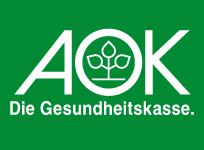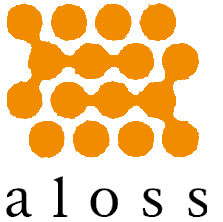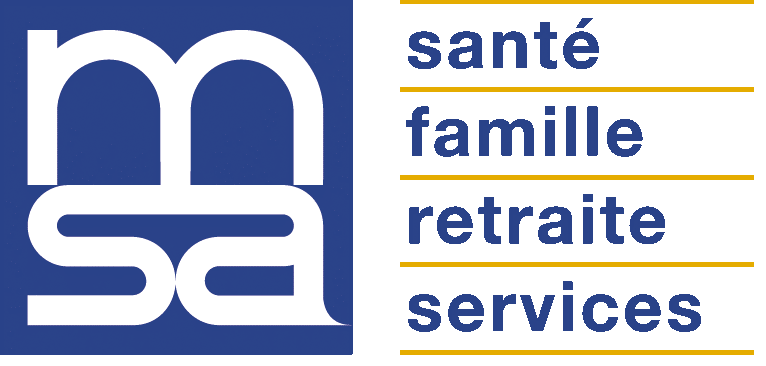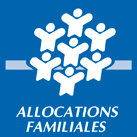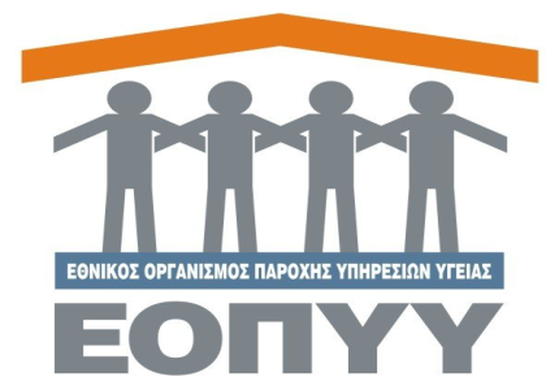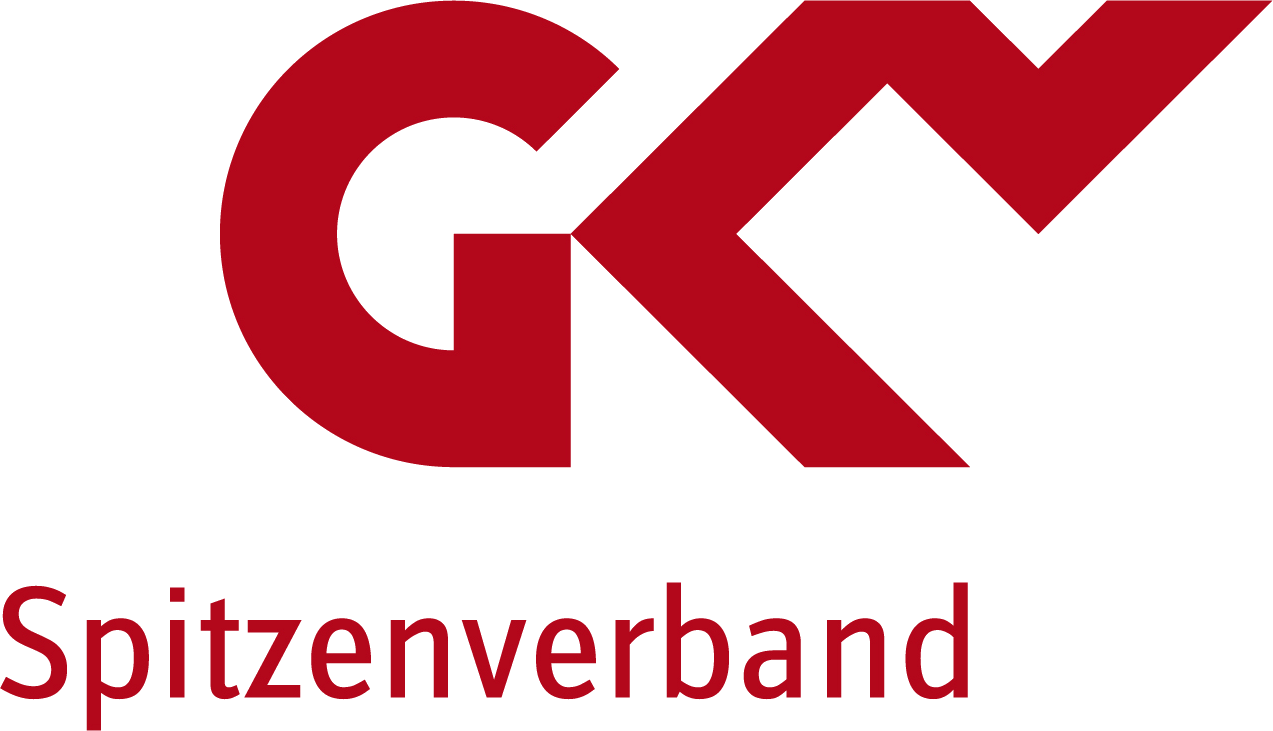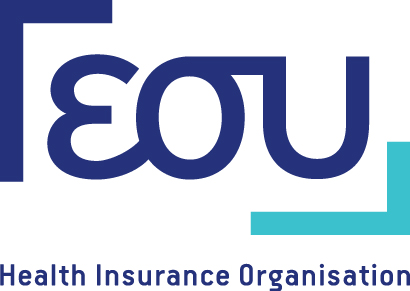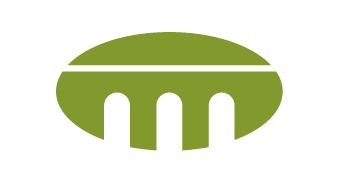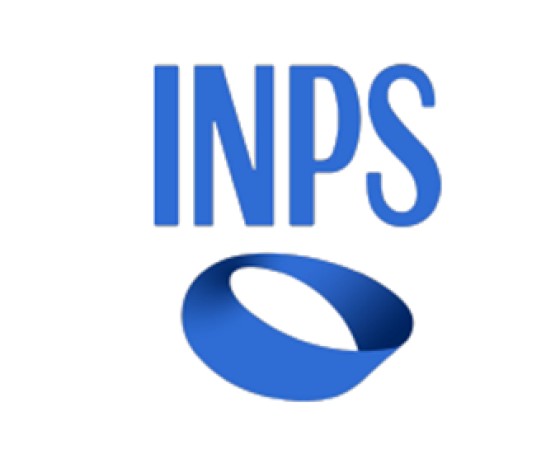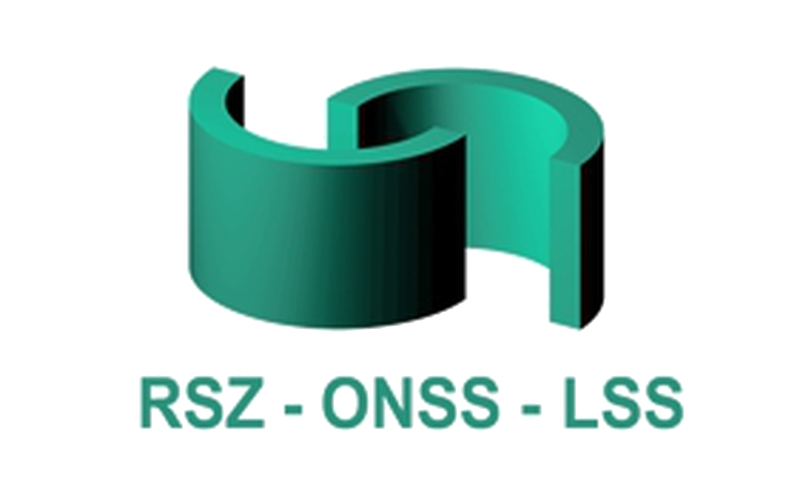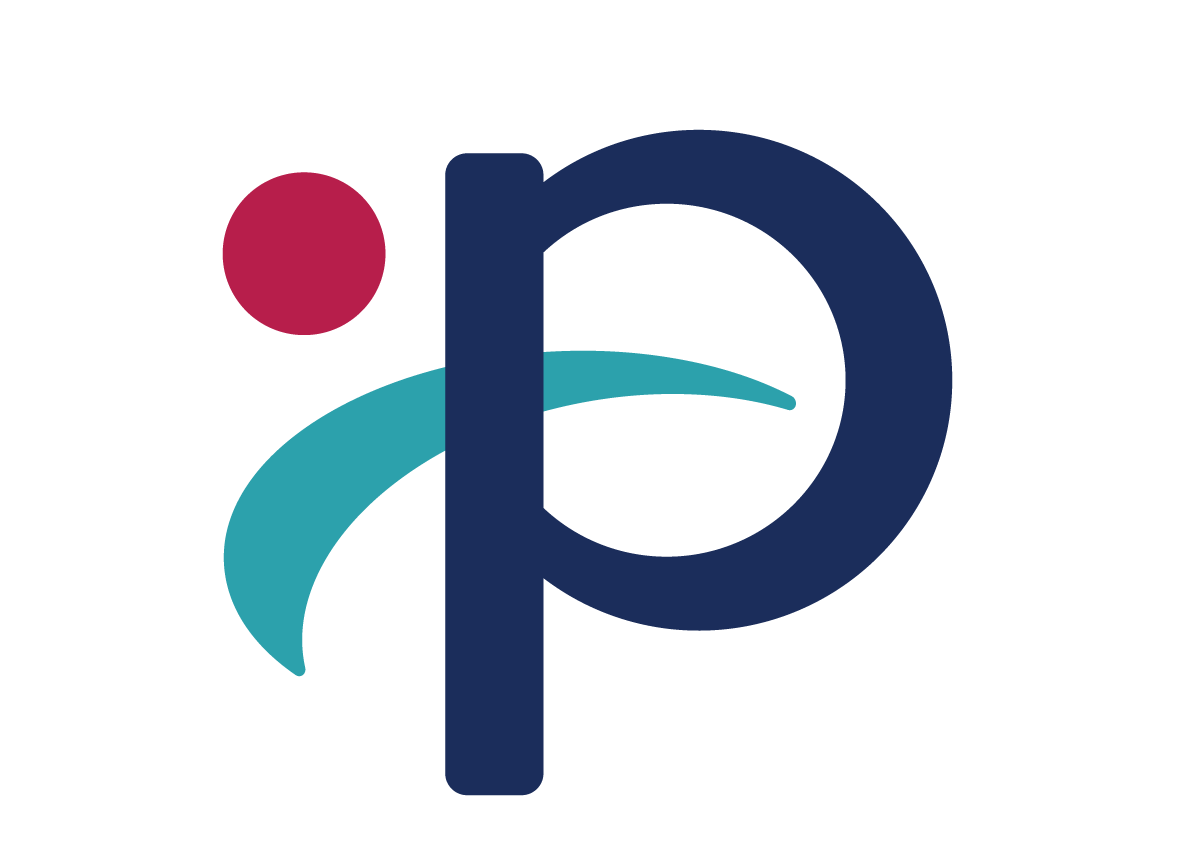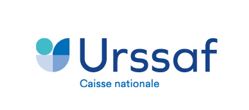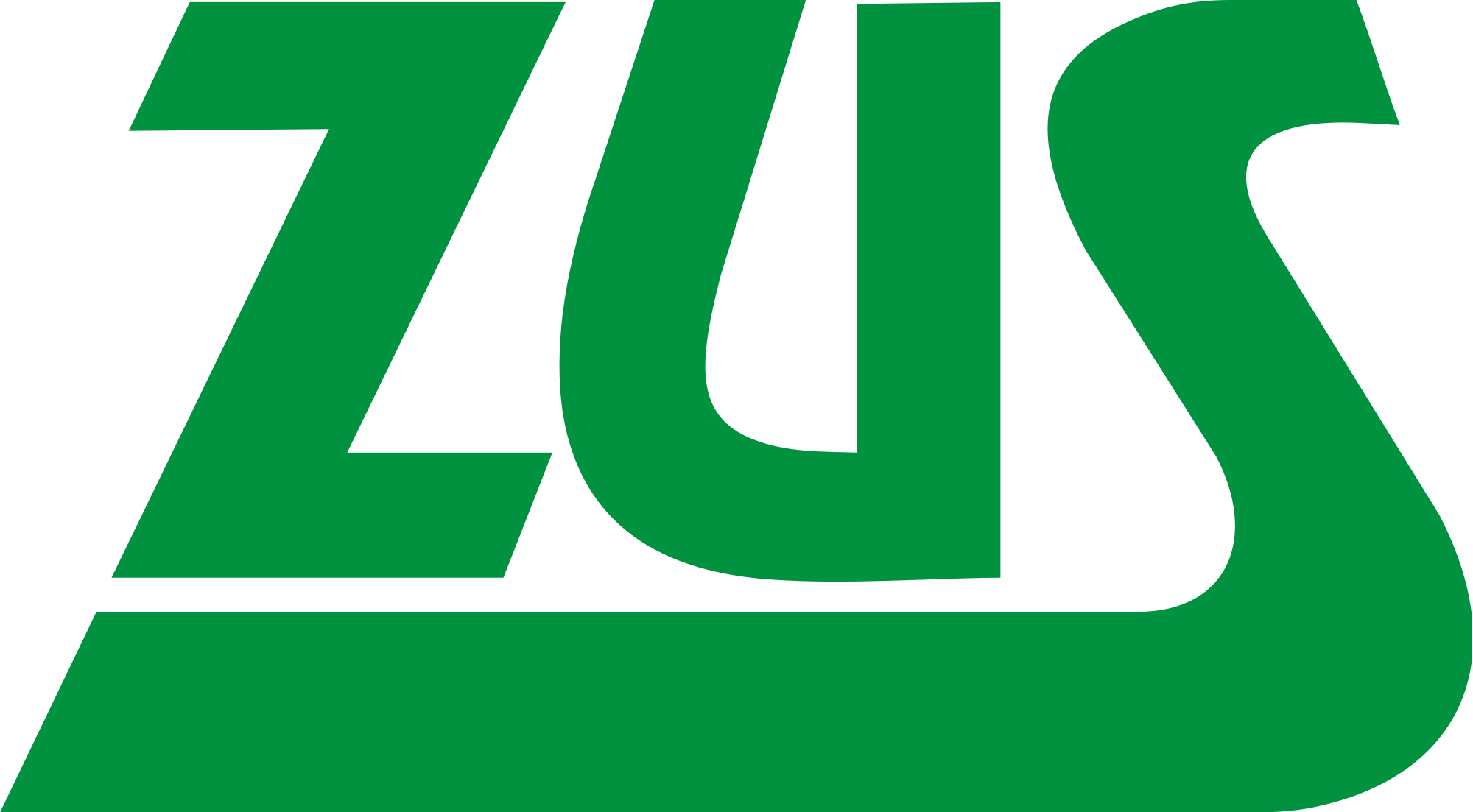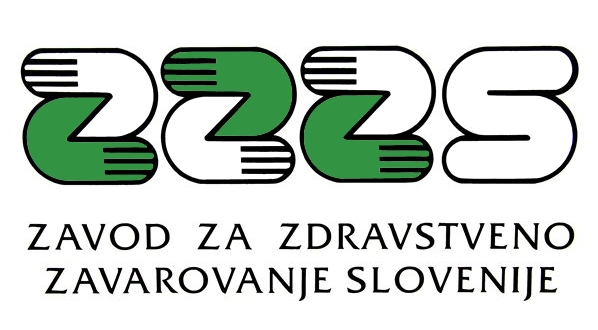The ongoing COVID-19 outbreak is challenging social security systems, as healthcare, unemployment insurance and pensions, among others, are under pressure. National social security systems have a strong role to support insured persons, healthcare professionals and the economy at large. In the context of the EU, the coordination of social security systems is also particularly affected.
The European Social Insurance Platform (ESIP) is gathering information amongst its members and will keep this page updated with new information regarding measures taken to alleviate the social and economic impact of the COVID-19 pandemic.
List of countries
 Austria
Austria
 Belgium
Belgium
 Bulgaria
Bulgaria
 Croatia
Croatia
 Czech Republic
Czech Republic
 Finland
Finland
 France
France
 Germany
Germany
 Italy
Italy
 The Netherlands
The Netherlands
 Slovakia
Slovakia
Austria
Applicable legislation: no impact for the coverage of frontier workers
The Austrian position states that temporary activity exclusively at the place of residence or in home office in one Member State due to state emergency measures does not change a Member State's already established competence as state of insurance. Affected persons who are no longer able to carry out their activities in several Member States do not have to report this fact and do not have to return their A1-certificate if the situation is of a temporary nature due to governmental emergency measures and if they intend to continue their activity in the territory of several Member States after the restrictions end.
Supporting the unemployed
Unemployed persons are supported with unemployment benefits as usual. However, Austria puts a specific focus on the model of short-time work which means temporary reduction in normal working hours and wages due to economic difficulties. Its purpose is to temporarily reduce labour costs and still keep employees. In short-time work, employees reduce their working hours by up to 90% and still receive the majority of their previous wage. The employer receives an allowance from the AMS (Public Employment Service) if all requirements are met.
Supporting the self-employed
The Austrian government established short time work as preferred economic solution for affected companies and their employees. For self-employed persons who have no turnover at the moment, a hardship fund has been established in order to help them cover their living expenses. In addition, their social security contributions can be deferred or paid in instalments upon agreement with their competent social security institution.
Providing care time for employees with children
An employer can grant employees who are affected by the closure of schools or childcare facilities and who are not necessarily needed in the company up to 3 weeks of paid free time, the so-called special care time. The employer continues to pay the employee and is then entitled to reimbursement of one third of the remuneration, which is to be claimed from the federal accounting agency. Please note that this is not a social security benefit.
Ensuring the continuity of provision of services
There are no major difficulties regarding provisions of benefit in Austria. All Austrian social security institutions, which provide health care have adopted rules and regulations considering the COVID-19 pandemic (e.g. telemedical consultation, e-medication, paperless prescription, crisis support). Online services are being offered in order to reduce unnecessary personal contact. Regularly updated information can be accessed on the websites of the social security institutions.
Provision of sickness benefits
In case of actual sickness (COVID-19) which is confirmed by a doctor’s note, health insurance benefits apply as per usual. However, in the case of COVID-19, the order of quarantine is not equivalent as a doctor-attested sickness. Being in quarantine is not a suffficient basis to receive sickness allowance.
Belgium
Determination of applicable legislation
Due to the pandemic caused by COVID-19, the work pattern and workplace for many salaried and self-employed workers has changed. Under social security coordination rules, if cross-border workers will be working more or full time at home via telework, a different Member State would become competent for their social security. For Belgium, it is not desirable that changes in work pattern limited in time and due to the national containment measures lead to changes in social security affiliation. In particular, for frontier workers who would shift their substantial activity (up to 25% of their working time) in their Member State of residence, that Member State would become the competent one.
Therefore, Belgian authorities have decided that periods of telework exercised on Belgian territory by cross-border workers due to coronavirus will exceptionally not be taken into account to determine the applicable social security legislation. The competent Member State based on the regular work pattern will thus remain unchanged, providing more certainty for employees, employers and the self-employed. The decision will be valid between 13 March until at least 5 April 2020. The change in work pattern must be due to mitigation measures and will have to be normalised once restrictions are lifted.
A similar approach was taken in France, Germany, the Netherlands, Luxembourg and Denmark, among others.
Find out more on the ONSS website.
Facilitating the mobility of cross-border workers
In order to facilitate the mobility of essential cross-border workers. Specific forms have been issued by the Belgian authorities to allow workers and employers to prove that they need to cross the border to work. In addition, the Belgian crisis centre has issued a specific sticker to persons with essential jobs in order to allow them to cross the border more quickly and to avoid waiting lines.
Use of temporary unemployment benefits to protect jobs
The Belgian unemployment scheme includes the possibility to grant temporary unemployment benefits to persons who can no longer work to special circumstances. The labour contract is thus only temporarily suspended. Therefore, the labour contract of the worker remains untouched and the person doesn’t become fully unemployed.
Ensuring channels of communication for insured persons
The Belgian National Employment Office has reinforced the capacity of its contacts centre. The application for temporary unemployment benefits can be made through online forms. In addition, the website of the NEO is regularly updated with legal and practical information for employers and workers.
Facilitating the calculation and payment of social contributions of the self-employed
Social security contributions in Belgium have to be paid every trimester. However, self-employed workers that are impacted by COVID-19 are able to get an extended deadline for the first and second trimester of 2020 after asking their social insurance fund to delay the payment of contributions for up to one year. This extension doesn’t induce the payment of supplement and doesn’t affect the access to benefits. The demand for an extension can be introduced until 15th June. A similar measure was introduced for the late payment of adjustment contributions for the year 2018 that normally need to be paid by the 31th of March, 30th of June or the 30th of September 2020 respectively.
In addition, under the Belgian system, the contributions for self-employed workers are first paid on the basis of provisional income. After 1,5 to 2 years later when the actual revenue is available and adjustment contributions may have to be paid. Self-employed workers can ask for the provisional revenue for 2020 to be decreased. An automatic and generalized cancellation of supplements for the non-payment of contributions due by 31 March 2020 was also provided, and no reminders or warrants for unpaid contributions are being sent out.
For the self-employed this exemption of contributions will not generate pension rights for the trimesters in question, but the possibility to regularise this situation is offered within the next 5 years by buying semesters.
The procedure for introducing those requests has also been simplified.
Extension of financial support for self-employed encountering unemployment
In Belgium, the self-employed are not entitled to unemployment benefits, however a special financial support system is in place in case of force majeure (overbruggingsrecht / droit passerelle). This system has been extended to the COVID19 pandemic, for self-employed whose activity has suffered or been interrupted.
Simplification of procedures for pensions
As many other countries, Belgium has decided to temporarily halt the request that pensioners abroad provide certificates of living in order to continue to receive their pension. In addition, the procedure to request the payment of a pension has been simplified to allow for a full application to be done online or by phone.
Bulgaria
State support for affected employers
The Bulgarian government will reimburse to employers for three months in the affected branches 60% of the gross salaries of the employees. The state support will target companies with more than 20% of decrease of their monthly income compared to February 2020. However, there will be no changes to social security contributions. The Bulgarian government will however in April actualise the state social security budget in line with the budgetary projections of the impact of COVID-19.
Croatia
Deferral of payment of social security contributions
A deferral of payment of social security contributions has been introduced. The deferral of is of 3 months, with a potential extension to an additional 3 months. A possibility to request settlement in instalments is also introduced.
Aid to support economic activity
Aid is provided to preserve jobs in sectors most affected by coronavirus. Part of the national budget can be mobilised as a contribution to sectoral intervention grants to entrepreneurs. In addition, grants provided to the self-employed will not be regarded as taxable income.
Preserving employment of persons with disabilities
The payment of minimum wages for persons with disabilities will be ensured to facilitate employment retention.
Czech Republic
Facilitating the provision of information and benefits
The Ministry of Labour and Social Affairs (incl. Labour Office) as well as the CSSA are continuously posting recent news on their website, including in foreign languages. Both institutions launched chatbots providing clients with basic help. All the clients are invited to use preferably distance communication such as e-mail, phone, mail or online services. Usual requirements of electronic signature are not nowadays demanded.
The list of official webpages is available below:
MoLSA/Labour Office:
Homepage: https://www.mpsv.cz/
CSSA:
CZ: www.cssz.cz , Aktuality
EN: https://www.cssz.cz/web/en , Latest News
DE: https://www.cssz.cz/web/de , Aktuell
FR: https://www.cssz.cz/web/fr , Actu
In addition, a number of important forms of the Czech Social Security Administration (CSSA) are translated into English to facilitate the exchange of information also with foreign institutions and foreign insured persons, in particular those for the attendance allowance in case of care for children, quarantine confirmation and sick leave. The forms are available ta the following address: https://www.cssz.cz/web/en/forms.
Applicable legislation: ensuring equal treatment and taking into account specific situations
Due to the coronavirus pandemic, some foreign workers working and insured in Czech Republic have decided to return to their home countries and work from home for their Czech employers and vice-versa. As a result, questions about the applicable social security legislation have arisen, with some employers worried that the change of workplace could lead to a change in the applicable legislation.
In case of quarantine and childcare, ensuring equal treatment in cross-border situations for frontier workers is an important issue, as they are employed and insured in one state and returning to their state of residence. According to the Czech interpretation of the free movement of workers (Reg. 492/11 Art. 7) and coordination rules (Reg. 883/04 Art. 5), in such situations the equal treatment of mobile persons applies. In addition, while all persons entering the Czech territory are obliged to stay in a 14-day long quarantine, a special regime was created for frontier workers in health and social care working for instance in Germany and Austria to allow them to cross the Czech border.
Ensuring continuity of coverage for cross-border and posted workers
The temporary measures introduced due to the pandemic are not relevant changes of circumstances that justify a change in the applicable legislation or a change of the state of insurance. Cross-border workers and their employers are therefore not obliged to report a temporary change of situation, such as home office and teleworking nor to return the certificate of applicability of the Czech social security legislation (form PDA1) if they intend to continue their activity in the territory of several Member States after the end of the restrictions.
In a similar way, the PDA1 form issued for a posted worker insured in Czech Republic is valid for the whole period for which it has been issued, including the state of emergency during which the free movement of persons is restricted, on the condition that the worker will continue to pursue the activity for which the PDA1 was issued. No specific notification or measure is required.
Supporting the self-employed and other workers
Self-employed persons who cannot pursue their activity because of the state of emergency will be entitled to receive compensation from the state. Employed workers that may lose their jobs due to the coronavirus can register at the labour office and will receive unemployment benefits if they meet the required conditions, as usual.
Access to healthcare and sickness benefits
Strict border controls have been introduced. Only a few minor exceptions allow for the crossing of borders. In particular, persons with a valid S2 certificate who are in a serious medical condition and require medical intervention inside or outside of Czech Republic are allowed to cross the border. European Health Insurance cards (EHICs) and (PRCs) are accepted for necessary healthcare in Czech Republic as usual.
If a person covered by Czech sickness insurance is affected by coronavirus or quarantined for more than 14 days, then he or she is entitled to sickness allowance. During the first 14 days, an employee will receive a wage replacement for the employer. This rule applies to all insured persons notwithstanding the place of quarantine (national territory, another EU member state or a third country).
Find out more at the following address: https://www.mvcr.cz/mvcren/article/coronavirus-information-of-moi.aspx.
Support for parents of children who are staying at home
The parents of children up to the age if 13 years, whose children must stay at home because of the closure of schools and kindergarten facilities are entitled to an attendance allowance, provided from sickness insurance by the CSSA, and thus not considered as a family benefit.
Easing access to state social support benefits
In addition, under the system of state social support benefits, an amendment to the national legislation has been prepared concerning the payment of child benefits, housing benefits and long-term care benefits. Once adopted, it will not be necessary to provide decisive income information to be entitled to the benefit concerned in the second quarter of 2020 but the benefit will continue to be paid automatically to the insured person if it was paid in the first quarter of 2020.
Alleviating pension contributions while ensuring sufficient benefits
The Czech Parliament has already adopted legislation to ensure that self-employed persons will not be obliged to pay their advances to obligatory pension insurance from March to August 2020. Next year, when paying pension insurance premiums for the year 2020 after submitting their annual Survey of income and expenses, they will have to pay only the amount of money exceeding minimum monthly advances for the period March-August 2020, thus decreasing their social security premiums. Furthermore, the period March-August 2020 will be excluded when calculating pension benefits as taking this period into account could lead to a lower amount of benefits.
Flexibility for pensioners abroad
As several other EU member states, the CSSA is temporarily accepting certificates of living without officially authenticated signatures, sent by different channels including through email or post.
Finland
Frontier workers encouraged to reach out to their competent institution
Temporary changes in work patterns do not have an impact on the applicable social security legislation for frontier workers at the moment but may have if the situation continues. The persons concerned are not requested to contact the competent institution, but they are advised to be in contact if there is a problem. Find out more: https://www.etk.fi/en/uutinen/telecommuting-because-of-the-corona-virus-which-countrys-social-security-applies/.
Information for posted workers
The Finnish social security institutions are increasing communication on what to do if an A1 certificate provided to a posted worker is expiring: a new certificate should be applied for if the work continues over 30 days. In these cases, the competent institution should be contacted. Find out more: https://www.etk.fi/en/uutinen/posted-worker-are-you-stuck-abroad/.
Readiness of the Finnish Employment Fund
The Employment Fund collects unemployment insurance contributions, which are used to finance unemployment allowances and adult education allowances, among other things. The Employment Fund will ensure the continuation of its operations in this exceptional situation and have prepared measured to secure basic functions during the coronavirus epidemic.
The Employment Fund´s primary goal is to secure statutory basic functions: collection of unemployment insurance contributions, financing of unemployment allowances and financing of adult education allowances. It will ensure good liquidity at all times, so that benefits can be financed as normal for unemployment funds, Kela, the Finnish Centre for Pensions and recipients of adult education allowances.
The Employment Fund estimates that the cost of rising unemployment will at least double the cost budgeted for this year. If the unemployment level reaches 15 % (earlier budgeted 7 %) the extra cost for unemployment benefits will be 1,9 billion euros.
Support for entrepreneurs and the unemployed
As a temporary measure, entrepreneurs are entitled to unemployment security on the grounds of sudden and unforeseen decline in the demand due to the coronavirus epidemic.
There are also some temporary amendments to the Unemployment Security Act, intended to improve the financial position of persons in need of unemployment security in the difficult economic situation caused by the coronavirus epidemic. Legislative amendment extends employees’ right to unemployment benefit during lay-off and provides easier and quicker access to unemployment benefit.
Managing the impact on healthcare and sickness benefits
Finland has not taken any special measures concerning sickness benefits in kind. Normal coordination rules apply. During the COVID-19 pandemic the health care providers can give priority to urgent care. Therefore, care that is not considered as urgent may be postponed to a later date. According to Finnish national law and Finland’s international obligations there are no client fees connected to the testing and treatment of the COVID-19. This also applies to persons insured in another Member State.
Infectious disease allowance provides cover for loss of income if the physician responsible for infectious disease control in the municipality or hospital district has ordered the person into quarantine or isolation, or to be absent from work in order to prevent the spread of an infectious disease. Incapacity for work is not required in order to qualify for infectious disease allowance. However, incapacity for work does not preclude qualification for infectious disease allowance. Infectious disease allowance is a full compensation for the loss of income suffered.
Infectious disease allowance can also be granted if the person provides care for a child aged under 16 years and the physician responsible for infectious disease control in the municipality or hospital district has ordered the child to stay at home due to an infectious disease and for this reason the person cannot work. Sickness allowance can be granted if the person is aged 16–67 years and cannot do his/her regular work because of an illness. Sickness allowance and infectious disease allowance cannot be paid simultaneously.
Persons who are covered under the Finnish social security system and who have been ordered into isolation or quarantine in an EU or EEA country, in Switzerland or in Great Britain may be entitled to infectious disease allowance. In such cases, a certificate from a physician authorised to issue an isolation or quarantine order in the relevant country must be enclosed with the application. However, infectious disease allowance cannot be paid to insured persons residing in third countries.
Flexible rules for pensioners abroad
Usually, the competent institutions in earnings-related pensions check the entitlement of the pension recipients once a year. In these exceptional circumstances, the institutions consider it important that no pensions is cancelled and they are therefore introducing new ways for pension recipients to show their entitlement. Normally, this is done with life certificates. The pension recipient has to return the life certificate with their signature. Now phone calls and email can be accepted. Competent institutions do not normally require for an official authentication from the other MS.
Alleviating pension contributions
The employer pension contribution rate at the private sector earnings-related pension scheme has been temporarily lowered by 2,6 percentage points until the end of the year. In addition, there is a possibility for employers for a postponement of the contribution by three months.
Simplifying access to family benefits
At the moment the Finnish social security institutions continue to apply almost the same rules and instructions as in normal circumstances. Yet, some simplifications have been made to application process for family benefits. In addition, child home care allowance is paid on the same grounds as before. The Finnish government is also discussing the possibility to offer a compensation to those who suffer from loss of income because of being absent from work while taking care of the children at home.
Ensuring the continuity of social security provision
At the moment approximately 70 % of Kela´s benefit applications are already done online. In the current situation Kela has increased its online services so that one can apply online also for most of the benefits that normally cannot be applied for online. Kela has also increased phone services and added the possibility to apply via phone.
France
Adjustments of social security coordination rules in particular for cross-border workers
The application of social security coordination rules has been adjusted, in particular with regard to determining the legislation applicable to frontier workers, multi-skilled workers (who work for one or more employers in at least two States, including France), seconded during the Covid-19 crisis management period and who use teleworking.
Telework at home for cross-border workers
The use or massive increase of telework at home for cross-border workers residing in France and exercising their professional activity in another EU / EEA / Switzerland State has no impact on their affiliation and their rights to benefits. The same applies to workers posted to an EU/EEA/Switzerland state and to multiple workers by derogation to the existing principles in the European regulations.
Facilitation of cross border mobility in case an activity cannot be carried out at a distance
Specific measures have also been taken by instruction of the French Ministry of the Interior to facilitate the crossing of borders by frontier workers whose activities cannot be carried out at a distance in order to enable frontier workers to reach their place of work. In particular, permanent authorisations issued by the employer or specific passes granted by the national authorities may be issued.
Posted workers/seasonal in agriculture
Due to the closure of borders, using posted seasonal workers is impossible. Farmers need to recruit quickly agricultural manpower to secure food production and keep their businesses running. The initiative called “Let's mobilize to secure our plates!” led to the creation of an online platform with the support of Pôle Emploi to put candidates and employers in touch: https://desbraspourtonassiette.wizi.farm/ The usual hiring and declaration procedures remain unchanged.
Special provisions in the bilateral Franco-Monegasque social security agreement
In view of the exceptional circumstances, the increase in teleworking time or the start of teleworking also has no effect on the pre-existing social security regime for frontier workers and workers posted to Monaco. The special provisions provided for in the bilateral Franco-Monegasque social security agreement in the event of teleworking have been lifted. These adjustments have been made by all the ministries concerned.
Support measures to preserve jobs and support the unemployed
A mix of unemployment benefits and national employment support funds have been triggered with more than 8 million of workers under short time working allowance to prevent employees from losing their jobs during containment measures:
- A simplified and reinforced use of the partial activity system which is available to companies experiencing cyclical economic difficulties. This system, also called “partial unemployment”, enables companies to receive financial aid to offset the loss of income caused by the reduction in the working time of the concerned employees. Companies have 30 days from the interruption of activity to apply for the partial activity system; compnsation will be retro-active. The request form is available at the following address: https://activitepartielle.emploi.gouv.fr/aparts/
- Strengthening of the compensatory indemnity paid to employees undergoing partial employment: partial unemployment, normally compensated up to the minimum wage, will be fully supported (100%) by the government, up to 4,5 times the minimum wage (6,927 € gross monthly). https://www.economie.gouv.fr/coronavirus-soutien-entreprises
More information: https://travail-emploi.gouv.fr/actualites/l-actualite-du-ministere/article/coronavirus-questions-reponses-pour-les-entreprises-et-les-salaries
Facilitating cross border healthcare provision
For cross border treatments, it is intended that S2 forms (Request for Scheduled Care) will be issued retrospectively for these exceptional circumstances of patient transfer throughout the Covid-19 crisis management period.
Sickness allowance for persons affected by COVID19
Insured persons who are affected by COVID19 are covered for sickness risk by the payment of daily allowances without a waiting period as long as they are affiliated to a French social security scheme.
Persons affiliated in France even though they reside in a neighbouring State benefit from the support measures taken by the Health Insurance in terms of daily allowances, under the same conditions as all the others insured under the French scheme. This is also true for a worker posted from France to another member state.
Insured persons residing in a third State that are affiliated to a French social security scheme will benefit from the measures taken by the Health Insurance in terms of daily allowances under the same conditions as all other persons insured under the French scheme. For instance, if an employee is seconded to another State, he will benefit of daily allowances because he is affiliated to the French social security scheme for the entire duration of his secondment. All the measures described above are also implemented by the agricultural social insurance scheme dedicated to salaried and self-employed people. Furthermore, regarding Health and safety at work issues, MSA is fully mobilised and assists salaried employees and farmers to enable them to work while protecting themselves and their environment.
Exceptional work interruption/sick leave period for persons at-risk and those caring for children
In France, we have introduced a temporary work interruption/sick leave for people at risk of developing a serious form of infection (chronic diseases patients, pregnant women) or employees that cannot work from home because they need to take care of their kids (under the age of 16) while schools are closed. Only one parent at a time (or holder of parental authority) may be issued a work interruption/sick leave, but it is possible to split the notice or share it between the parents over the period of closure of establishment.
To benefit from this exceptional allowance, insured persons need to go through the website "declare.ameli.fr" which is a system for declaring work interruption/sick leave set up by the Health Insurance. It is a declaration that acts as a notice of work interruption and replaces the interruption prescribed by a healthcare professional. The notice can be issued, without waiting periods or conditions for opening the rights, for a period of 1 to 21 days and may be renewable. The same measure was put in place by MSA, the agricultural scheme for salaried and self-employed, by opening a special website: https://declare2.msa.fr
In the context of the Covid-19 epidemic, the Health Insurance covers, by way of derogation and without waiting period, the daily allowances for self-employed health professionals if they have to interrupt their professional activity, in accordance with the same terms and conditions as those applied to employees and self-employed workers. These allowances amount to a daily allowance of €72 for paramedical professions and €112 for pharmacists and medical professions.
It is interesting to note that the Health insurance received between 1 and 1.5 Million of work interruption/sickness allowance applications in the first two weeks of lockdown.
Family branch information
The family branch provides information on the Covid-19 pandemic on the caf.fr and monenfant.fr. Appointments for CAF benefits claimants can take place remotely (telephone interview, videoconference). Contacts can also be made by email or through personalized « my account » space of the beneficiary on the caf.fr.
Child care services
The President of the French Republic announced the general closure of nurseries from March 16 onwards and the setting up a system of childcare arrangements for the personnel essential to the management of the covid-19 crisis. The nurseries are closed to the children they receive habitually but can remain open (free of charge) for children of critical workers (health professionals, police, firefighters etc.) subject to a limit of 10 children received simultaneously. In order to support parents, the Prefects set up this emergency care serviceA special service to identify the needs of these families and the available places has been created on the website of the Family Branch: monenfanf.fr.
The French national family benefits fund (Cnaf) grants exceptional aids to nurseries for children under 3 which had to close down from March 16 until further notice due to the ongoing COVID-19 pandemic. This flat-rate aid amounts to 27 euros (per day and per number of childcare places reserved in the structure which were left unused ) for public nurseries and 17 euros for private nurseries (the amount for the latter is lower since these nurseries can receive an aid from the French unemployment fund). The nurseries do not charge parents for hours of childcare non realized.
Childminders experiencing earnings loss as a result of temporary inactivity can benefit from the partial activity mechanism (enabling them to be compensated at 80% of their net salary and keeping their existing contract with the parents). In addition, the registered childminder’s houses which had to close down entirely or partially can receive 3 euros (per day and per number of childcare places reserved which were left unused) to cover rental costs.
As to other services and facilities aimed at families and supported by the French family branch, the Caf aids are maintained, to the full or partial extent, depending on the case, in the case of closure due to covid-19. Yet, some of these structures maintain their activities relying on remote work of the employees and volunteers.
Similar measures to those described above are also implemented by the agricultural social insurance scheme dedicated to salaried and self-employed people.
Entitlements to benefits automatically renewed
The provision of family benefits granted by the family benefits offices (CAF) is not affected and the continuity of rights is guaranteed. The beneficiaries receive exceptionally their benefit payments in April at an earlier date, in order to provide them with the best possible support.
The Caf encourages the beneficiaries to use online services to make their quarterly declaration of income. If a beneficiary is unable to renew the quarterly declaration of income with Caf offices due to Covid-19 crisis, the entitlements to benefits are automatically renewed.
This applies in particular to the following benefits : active solidarity income (revenu de solidarité active (RSA)), specific allowance for French departments overseas (revenu de solidarité (RSO) dans les outremer), allowance for disabled adults (allocation adultes handicapés (AAH)), education allowance for disabled child (allocation d’éducation de l’enfant handicapé (AEEH)), housing allowances as well as a set of means-tested social benefits granted by the Caf. In order to facilitate access to social benefits, including minimum social benefits, some post offices counters were re-opened in early April so that social welfare benefit recipients can collect their payments from post offices, if need be.
In addition, the entitlements to AAH and AEEH which are about to expire, are automatically extended by 6 months.
In cases of emergency, the Caf can grant financial aid due to Covid-19 crisis for families in need (for instance families coping with precarious situations, single-parenting, handicap or bereavement).
As every year, the amount of certain benefits provided by the Caf are reassessed on the 1st of April and the Covid-19 outbreak has no impact on the revalorisation.
Regarding housing benefits, the reform of personalized housing benefits (APL) programmed for 1st of April 2020 is postponed due to Covid-19 crisis.
Similar measures to those described above are also implemented by the agricultural social insurance scheme dedicated to salaried and self-employed people.
Regarding protection of families, in the difficult context of the Covid-19 epidemic, some people may find themselves isolated or in distress. In order to break isolation and prevent from psycho-social risks, Agri'écoute, the 24-hour telephone helpline is available for farmers and farm employees, as well as their relatives. This service allows confidential dialogue with a professional.
Exceptional solidarity allowance for the most deprived
An exceptional solidarity allowance will be provided from 15 May to the most deprived families and children. The allowance will be provided to the households already perceiving the active solidarity income (revenu de solidarité active (RSA)) or the specific solidarity allowance (allocation de solidarité spécifique (Ass)). The allowance will consist in an additional aid of 150 euros per household with an additional 100 euros per children under 20 years old. Find out more: http://www.caf.fr/allocataires/actualites/2020/une-aide-exceptionnelle-de-solidarite-versee-mi-mai.
Public service continuity for the pension statutory scheme
Cnav (National Pension Scheme) and its regional pension schemes are finding solutions to continue to treat pension application and to pay pension to all general pension scheme’s insurers, to ensure public service continuity. Management rules are implemented to continue the service and for precarious persons. Similar measures to those described above are also implemented by the agricultural social insurance scheme for their pension beneficiaries.
Alleviating social security contributions
The first steps have been taken to postpone the payment of contributions for companies. Amicable and forced collection procedures are suspended. The government is considering a cancellation of social contributions to save the companies most affected by the crisis. For the self-employed, in accordance with the measures announced by the government in the context of the coronavirus crisis, the URSSAF network is mobilised. The monthly deadline of 20 April will not be taken. Pending future measures, the amount of this due date will be smoothed over future due dates (May to December).
In addition to this measure, the following can be requested:
- an adjustment of the contribution schedule to take into account a drop in income, by reassessing the 2020 income without waiting for the annual declaration;
- the intervention of the social action of the council for the social protection of self-employed workers (CPSTI) for the partial or total coverage of contributions or for the allocation of exceptional financial aid;
- the intervention of tax authorities to benefit from the aid provided by the solidarity fund.
- in the case of agricultural economic activity, the public authorities have put in place specific measures to support farmers affected by the crisis such as deferred payment of contributions without penalty. Under certain conditions, very small farm businesses and farmers can benefit from financial support through an aid of 1.500 €.
Residence permits for legally-resident foreign nationals in the country
In order to secure the presence of legally-resident foreign nationals in the country and prevent any undermining of the rights conferred on them by the residence permits they possess, in particular the right to work and the enjoyment of social rights, several residence documents have their periods of validity extended by three months. Foreign nationals carrying expired permits and benefiting from this extension are advised not to leave French territory, as they risk encountering difficulties in re-entering.
Similar measures to those described above are also implemented by the agricultural social insurance scheme dedicated to salaried and self-employed people.
Germany
No changes to applicable social security legislation for mobile workers
As in many other EU Member States, Germany will not apply any changes to applicable legislation for mobile workers. A portable document A1 is not required as they are only issued as proof of the application of German legislation when required in the country of residence under article 12(1) of Regulation (EC) 883/04. Indeed, the employment in the Member State of residence is only temporary.
This is true for frontier workers who have to work fully or partly at home. Similarly, for persons habitually employed in several Member States, under article 13 of Regulation (EC) No 883/2004, the change of working time will not result in changes to the applicable social security legislation. The A1 certificates issued remain valid.
Find out more about the German approach to applicable legislation.
Emergency support to low-income families
An exceptional child allowance was introduced for low income parents, at a level of up to 185 euros per child. Both employed and self-employed workers can apply for this allowance which will be provided between April and September 2020. Additional amendments to the national legislation on parental benefits are currently in preparation.
Support to employment
Employed persons are supported through short time work compensation provided by the Labour Administration.
Solidarity and support within the healthcare system
The hospitals of the accident insurance are cooperating with other German hospitals to support the healthcare system. In particular, a special categorisation of illnesses has been put in place to avoid overburdening of the general hospital system.
Financial impact on sickness allowances expected to be low
In Germany, it is evaluated that COVID-19 will have the biggest financial effect on sickness allowances in 2020, however, depending on the infection rates and the effectiveness of measures against the spread of COVID-19, the expected additional expenditures for sick pay may also be budgeted to the next year. In case of infection, the average time from symptoms to recovery does not exceed the first six weeks of continued remuneration. Therefore, the financial impact of sick pay through the social health insurance funds, due to COVID-19, is expected to be low.
SARS-CoV-2 Occupational Safety and Health Standard
On 16 April 2020, the German Federal Ministry of Labour and Social Affairs (BMAS) and the Director General of DGUV presented the new SARS-CoV-2 Occupational Safety and Health Standard. Thestandard sets out rules to enable companies and their employees to work safe and healthy resuming work under pandemic conditions.
The German social accident insurance institutions and DGUV have been providing businesses with information and assistance since the beginning of the coronavirus pandemic such as FAQs to help provide an overview of the issue, sector-specific guidelines and information sheets. Some social accident insurance institutions have set up hotlines to provide advice on protective measures, rules and regulations as well as risk assessments for the Corona virus. DGUV has collected all the relevant documents and published a list of links, which are specific to industry and profession, on a Corona specific section of its website.
Following the release of the SARS-CoV-2 Occupational Safety and Health Standard, the German social accident insurance institutions will now adapt the Standard to the specific needs of individual industries. The aim is to provide pragmatic assistance to companies in order to meet the requirements necessary to resume operations and to work safely.
Additionally, the BMAS has set up a group of advisers to respond to the development of the pandemic and adjust the Standard, if necessary. The group is to comprise representatives of BMAS and the Federal Institute for Occupational Safety and Health (BAuA), the Robert Koch Institute (RKI), representatives of the German Trade Union Confederation (DGB), the Confederation of German Employers’ Associations (BDA) and statutory occupational accident insurance institutions (UVT), and experts.
“Kommmitmensch” prevention campaign adjusted to the Corona crisis
DGUV has also shifted the focus of its current “kommmitmensch” prevention campaign to the Corona crisis. The primary goal is now to give people helpful tips for dealing with the Corona crisis both at work and in their everyday lives.
New campaign material has been produced, e.g. the brochure “Leadership during a Pandemic”. The brochure includes tips on transparent communication, setting up home offices, and how to involve key stakeholders and protagonists in company processes.
A special section of the campaign’s website has been dedicated to the Corona crisis. It provides among others advice on how to deal with the virus in different sectors, tips on planning during a pandemic and information on protective masks.
General information on the Corona virus
Additionally, more information as well as information on insurance coverage, how companies can defer their contributions and other FAQs are available on DGUV’s website (some of it in English). The social accident insurance institutions are deferring the payment of contributions for companies in financial distress allowing delayed payments or payments in instalments in order to alleviate the financial burden during the crisis.
Respiratory masks
The Institute for Occupational Safety and Health of the DGUV (IFA) has developed a rapid test in cooperation with DEKRA Testing and Certification GmbH, which can be used to check whether respiratory masks, which are currently being produced and are awaiting approval, can also be used to protect people in the healthcare system for the duration of the health threat. The aim is to swiftly address the acute shortage of European-approved products that provide respiratory protection during the pandemic and thus protect medical and nursing professionals.
Additionally, DGUV has published a poster that provides businesses with an overview of the differences and serves as a source of information for the public.
Easing the payment of social security contributions
Companies that are encountering important economic difficulties have the possibility to defer the payment of contributions provided that the payment of the contributions constitutes a hardship for them and that the ability to submit claims for employees would not be jeopardized.
Italy
Extension of A1 certificates for posted worker
The Validity of A1 certificates expiring from 1 January to 31 July 2020 of a worker quarantined in the country of posting is extended until the end of the emergency (currently this term in Italy is 31 July 2020).
Support for the unemployed
Persons that are out of work due to the impact of coronavirus have access to unemployment benefits, with simplified rules for access. Special allowances have also been created. These include a special allowance of 600 euros for March 2020 for out-of-work self-employed. An allowance has also been created to compensate the temporary interruption of work of employees, with simplified procedures applying. This allowance comes in addition to the existing allowance, the so called “cassa integrazione”.
Further measures are expected to be announced in April and May 2020.
Special parental leave
Besides the ordinary rules about parental leave, a special parental leave has been introduced for Covid-19 as long as schools are closed. This parental leave is provided for up to 12 days per month of extra parental leave for the months of March and April 2020 (in addition to the ordinary parental leave) paid at 50% of the salary in case of children aged 12 or less and this period is also relevant for the pension systems. In the case of children aged 12-18, parents are entitled to 12 days per month of unpaid parental leave for March and April 2020, not taken into account in the pension system. As an alternative, parents who still work can benefit from special vouchers for baby-sitting services for up to 600 euros, which are increased up to 1000 euros for parents who work as physicians or nurses for the National Health System.
Postponed payment of social security contributions
The law provided for a postponement of social contributions payments for the enterprises active in some sectors affected by the crisis (tourism, sport centres, etc.) and all small enterprises.
Applying social security coordination rules
Almost all INPS employees continue working from home, therefore the single electronic documents (SEDs) received in the application of social security coordination can be managed, even if some delays are possible. Problems arise with non-EESSI Ready countries as Paper SEDs require certain formalities to be carried out exclusively by office work.
Facilitating access to online services
All social protection services provided by INPS are already on-line. However, procedures have been simplified (for instance the procedure to obtain the personal identification number).
The Netherlands
Simplifying procedures for pensioners abroad
The Sociale Verzekeringsbank (SVB) implementing social insurance schemes, such as pension (AOW), child benefit (AKW) and the personal care budget (PGB), has adapted its procedures for the recipients of pensions residing outside of the Netherlands. The provision of pensions abroad requires in many pension systems completing and sending of life certificates. Due to the difficulty for insured persons outside of the Netherlands to complete the certificates and get them certified by the competent authority, the SVB has suspended sending out life certificate forms for 6 months, from 14 April until October 2020. For certificates sent previously, the deadline will be extended to 1 October 2020.
The SVB is also guaranteeing the provision of social security benefits and will not take into account periods of telework in the country of residence for cross-border workers to avoid a change of social security affiliation.
Find out more about the measures in pensions, and applicable legislation.
Slovakia
Extension of childcare benefit provided
In Slovakia, a nursing benefit is provided for the personal and full-time childcare for children up to 10 years. The Social Insurance Agency (SIA) will automatically extend the duration and payment of the benefit for the whole period for which the authorities declared an exceptional situation leading to the closure of school and pre-school facilities. The parents concerned will not have to submit a new application to benefit from the extension.
Simplification of procedures for pensionners abroad
As many other countries represented within ESIP, pensioners living abroad who have not been able to provide the required proof of living due to the exceptional circumstances will continue to receive their pension from the SIA. However, pensioners abroad will be called on to respond to a request for confirmation by sending a self-signed certificate of living.
Life certificates suspended
As many other countries represented within ESIP, pensioners living abroad who have not been able to provide the required proof of living due to the exceptional circumstances will continue to receive their pension from the SIA. However, pensioners abroad will be called on to respond to a request for confirmation by sending a self-signed certificate of living.
Employers encouraged to establish electronic services
Employers have been reminded of the necessary procedures to establish electronic services in order to facilitate the declaration of employees and the payment of contributions.


